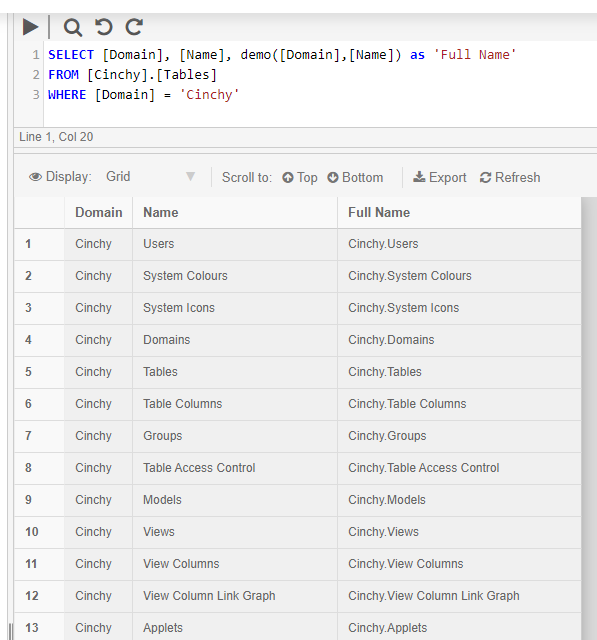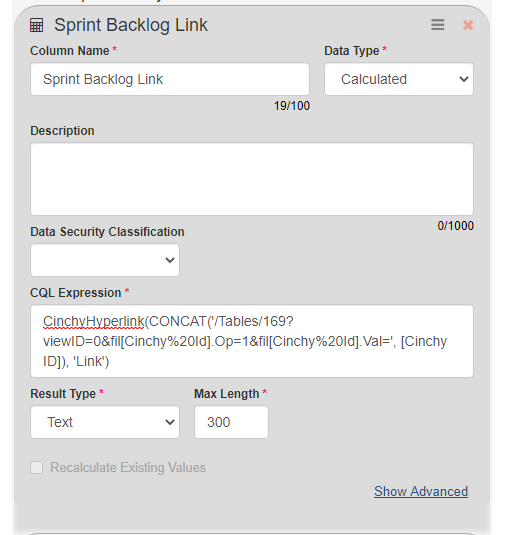Scalar-Valued Functions
Overview
Scalar-valued functions are a type of function used in programming and database query languages that return a single value. This is in contrast to table-valued functions, which return a set of rows.
With CQL, you can execute some JavaScript logic on the provided inputs and return a single value as a result. This can be powerful because JavaScript enables complex computations and operations on the data, beyond what traditional SQL might support.
Using a Scalar-Valued UDF in CQL
Select a scalar value UDF as a column (Image 1).
Sample UDF
function demo(param1, param2) {
return param1 + ' ' + param2;
}
Sample query
SELECT [Domain], [Name], demo([Domain],[Name]) as 'Full Name'
FROM [Cinchy].[Tables]
WHERE [Domain] = 'Cinchy'

Scalar-valued functions have to be invoked with a parameter, even if the definition of the function doesn't require a parameter. You can pass a string:
SELECT my_scalar('a') FROM [Cinchy].[Tables] WHERE [Deleted] IS NULL AND [Cinchy Id]=1
Use a Scalar-Valued UDF in a Calculated Column
Once you confirm that the UDF returns the expected result though a query, a calculated column can be include.
Calculations
Depending on how intensive or live you want the calculation to be, choose whether to make it a live or cached calculated column.
Simply add your UDF to the calculated column (Image 2).

Trigger an action
To use the UDF to trigger an action (such as creating a row in another table), it should be a cached calculated column.
Trigger best practices
Watch out for the following scenarios:
- Don't trigger when you don't have all the necessary fields.
- Don't trigger when non-relevant data on the row changes.
- Make sure to appropriately insert and/or update in another table.